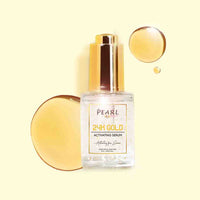Monsoon is the season with heavy rainfall. It is prioritized with high humidity and increased moisture. This creates an environment for skin allergies. Humid weather causes excessive sweating that causes irritation to the skin leading to fungal infections, eczema. Fungal infections can cause ringworm and athlete foot. The wet condition due to rains increases risk of bacterial infections. Understanding these symptoms and how to avoid them can be challenging. Following proper skin care routine with skin products helps us to maintain healthy skin. Let us understand how to treat our skin to protect from Monsoon skin allergies.
How Does Monsoon Affect Your Skin?
Monsoon is the time that brings relief from dry summer heats. It is the time for joy, fresh air and greenery in our surroundings with rain droplets. With rain and its unhygienic conditions, high humidity and sweat create an environment for skin problems. Due to humidness in the air, hair becomes frizzy. The skin becomes oily which can lead to acne as excessive oil clogs the pores and leads to acne. Some people have hair loss concerns as well. When hair becomes frizzy and dry it becomes unmanageable. These skin concerns can be sorted by using proper skin care products and maintaining skin hygiene.
What Are Skin Allergies In Monsoon?
Monsoon being the best season for perfect weather conditions after hot summers. With unhygienic conditions and contaminated water everyone must combat it with fewer health issues and skin concerns.
Acne And Eczema
Due to humid conditions, skin fails to retain moisture and as a result skin tends to be dry, rough and itchy. Applying coconut oil on effected areas would suffice. Wearing breathable clothes like cotton will comfort the skin.
Facial Folliculitis
Facial Folliculitis or inflammation of hair follicles is hair breakage due to rain. It is a fungal and bacterial infection caused due to humid conditions, sweating and dehydration. This can be controlled by preventing sweat and keeping the skin hydrated.
Scabies
During the rainy season, especially children play with contaminated water and all of us too have no option to escape from getting in contact with contaminated water. Contaminated water has parasites which are invisible to the naked eyes and cause intense itchiness and skin rashes and leads to scabies. If left untreated it spreads all over the body and is contagious to others well. Proper on-time medication can help us treat in initial stages of scabies.
Ringworm
We find red circular patches around the neck, armpits and soles of feet due to moist climatic conditions. This spreads rapidly to other body parts; proper medication is to be followed. As it is contagious, belongings must not be shared with one another.
Athlete’s Foot
At times, during the monsoon we experience cracked feet, discolored toenails, itchiness near feet, it could be due to fungal infections caused due to exposure to contaminated water. It is due to damp weather conditions.

What Are The Precautions To Follow During Monsoon
We all can enjoy our favorite rainy seasons, but we must follow a few precautions to be safe and healthy.
Skin Care
Use mild soaps and cleansers for the skin. Using non-comedogenic moisturizers can help keep our skin hydrated.
Clean Environment
Using humidifiers to lower our humidity levels. Keeping our surroundings clean and dry helps us to avoid breeding bacteria in our environment.
Hydrate And Diet
Our skin needs to be hydrated even in humid conditions. Using the best moisturizer for glowy skin would help our skin hydrated. Take a proper diet with antioxidants, vitamins and minerals to support our system.
Maintain Dryness
Apply antifungal powder to the sweating areas as it avoids sweating to avoid fungal infections. Use wearable cotton fabric to keep skin cool.
Skin Care Routine For Monsoon
Morning Skin Care
After cleaning the face use non-greasy moisturizer, Sunscreen with SPF 50 even on cloudy days and a 24k Gold serum to add glow to your skin.
Nighttime Skin Care
After a busy day, clean your skin and apply moisturizer, night cream for the skin to rejuvenate and replenish before we sleep and look forward to wake up with radiant glow on our face.
Monthly Skin Care
To remove dead skin cells and avoid clogged pores, exfoliate the skin weekly, once and four times in a month. It enhances blood circulation and adds glow to the face. Try not to wear makeup during the rainy season.

Conclusion
Monsoon being the breeding season for flowers, their pollens cause breathing difficulties. Skin allergies and infections are common in monsoon season but handling them in the right way can help us avoid allergies and infections. Using the right skin care products, maintaining hygienic conditions helps us avoid skin diseases. Damp climatic conditions pave the way for breeding of insects leading to allergies.










